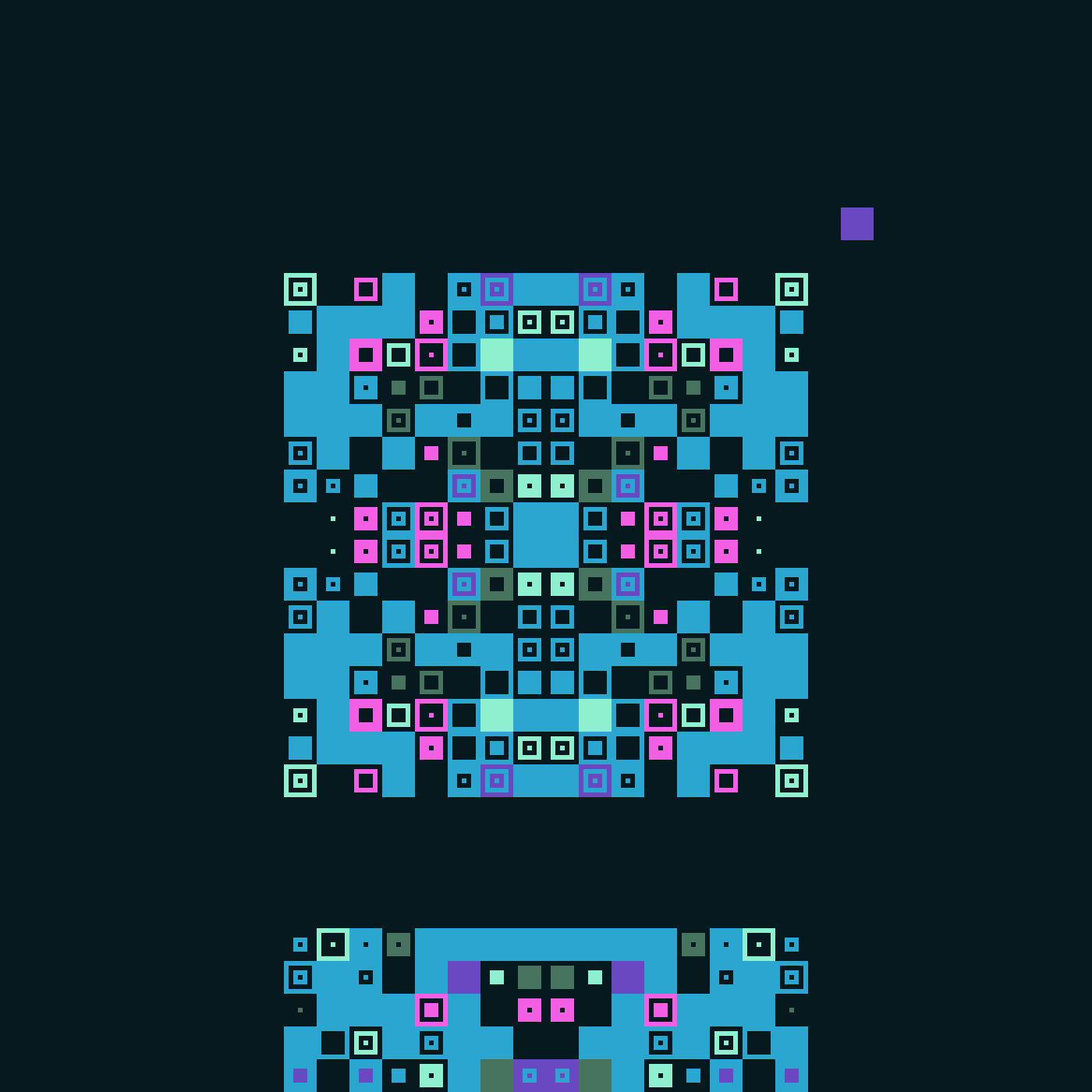
Preserving Symmetry Opepen is a generative art collection on the Ethereum Blockchain. The collection contains 350 unique randomly generated PFPs artworks inspired by Jack Butcher’s OPEPEN project.
-------------
Explanation of the Key Terms
NFTs
Non-fungible tokens (NFTs) are pioneering a transformative era in the digital world, disrupting traditional notions of ownership and value. These unique cryptographic assets, authenticated on the blockchain, represent a diverse array of digital creations, from artworks and music to virtual real estate and collectibles. What sets NFTs apart is their indivisibility and verifiable scarcity, offering creators and collectors alike an unprecedented level of authenticity and ownership in the digital realm. With NFT marketplaces flourishing, enthusiasts can explore a vast spectrum of projects and participate in upcoming drops across various blockchains, including Ethereum, Polygon, Solana, and Cardano. Beyond their monetary worth, NFTs foster vibrant communities, spark cultural conversations, and open doors to new forms of artistic expression and collaboration. As the NFT ecosystem continues to evolve and innovate, it prompts broader discussions about digital ownership, creativity, and the future of decentralized technology in shaping our digital experiences and interactions.
Ethereum Blockchain
The Ethereum blockchain stands as a testament to the boundless potential of decentralized innovation, reshaping the very fabric of digital transactions and applications. Conceptualized by the visionary Vitalik Buterin, Ethereum transcends the limitations of its predecessors by introducing a revolutionary platform that supports smart contracts and decentralized applications (DApps). Powered by its native cryptocurrency, Ether, Ethereum fosters an expansive ecosystem where developers can create, deploy, and interact with decentralized solutions across diverse industries. Its flexibility and scalability have made it a preferred choice for projects spanning decentralized finance (DeFi), non-fungible tokens (NFTs), and decentralized autonomous organizations (DAOs). Ethereum's commitment to decentralization and inclusivity empowers individuals and communities worldwide, fostering a culture of innovation, collaboration, and empowerment. As Ethereum continues to evolve with upgrades like Ethereum 2.0, it remains at the forefront of the blockchain revolution, shaping the future of digital economies and redefining the possibilities of decentralized technology for generations to come.
Blockchain
Blockchain technology stands as a cornerstone of innovation, offering a decentralized and immutable ledger that has the potential to revolutionize industries across the globe. At its essence, blockchain operates as a transparent and secure system of recording transactions, where data is stored across a network of computers in a chronological chain of blocks. This distributed ledger technology ensures transparency, security, and traceability, making it ideal for applications ranging from financial transactions and supply chain management to voting systems and healthcare records. What sets blockchain apart is its ability to foster trust among parties without the need for intermediaries, thus reducing costs and enhancing efficiency. As blockchain continues to evolve and find new applications, it heralds a future where trust, transparency, and decentralization are the cornerstones of the digital economy, reshaping the way we interact, transact, and collaborate in the modern world.
----------
RiseAngle NFT Calendar
RiseAngle NFT Calendar offers a comprehensive NFT drops calendar, allowing enthusiasts to stay up-to-date with upcoming NFT projects and mint schedules across Ethereum, Polygon, ADA, Solana, and other blockchains. Whether you're interested in exploring Ethereum drops calendar or tracking Polygon NFT drops, our platform provides valuable insights and information to help you navigate the fast-paced world of NFTs. Join our community today and explore the latest trends in the evolving NFT landscape.